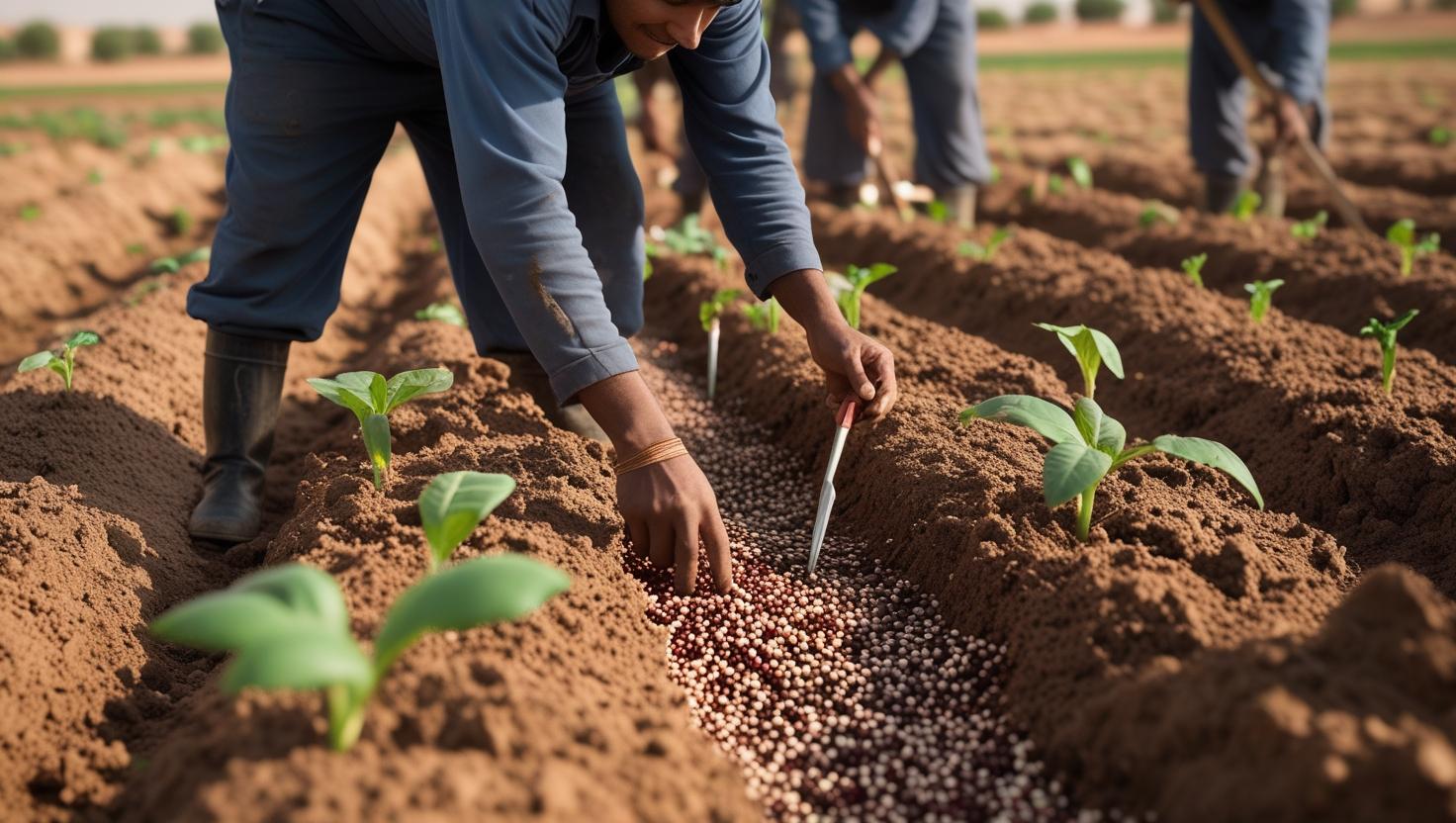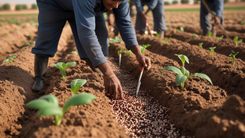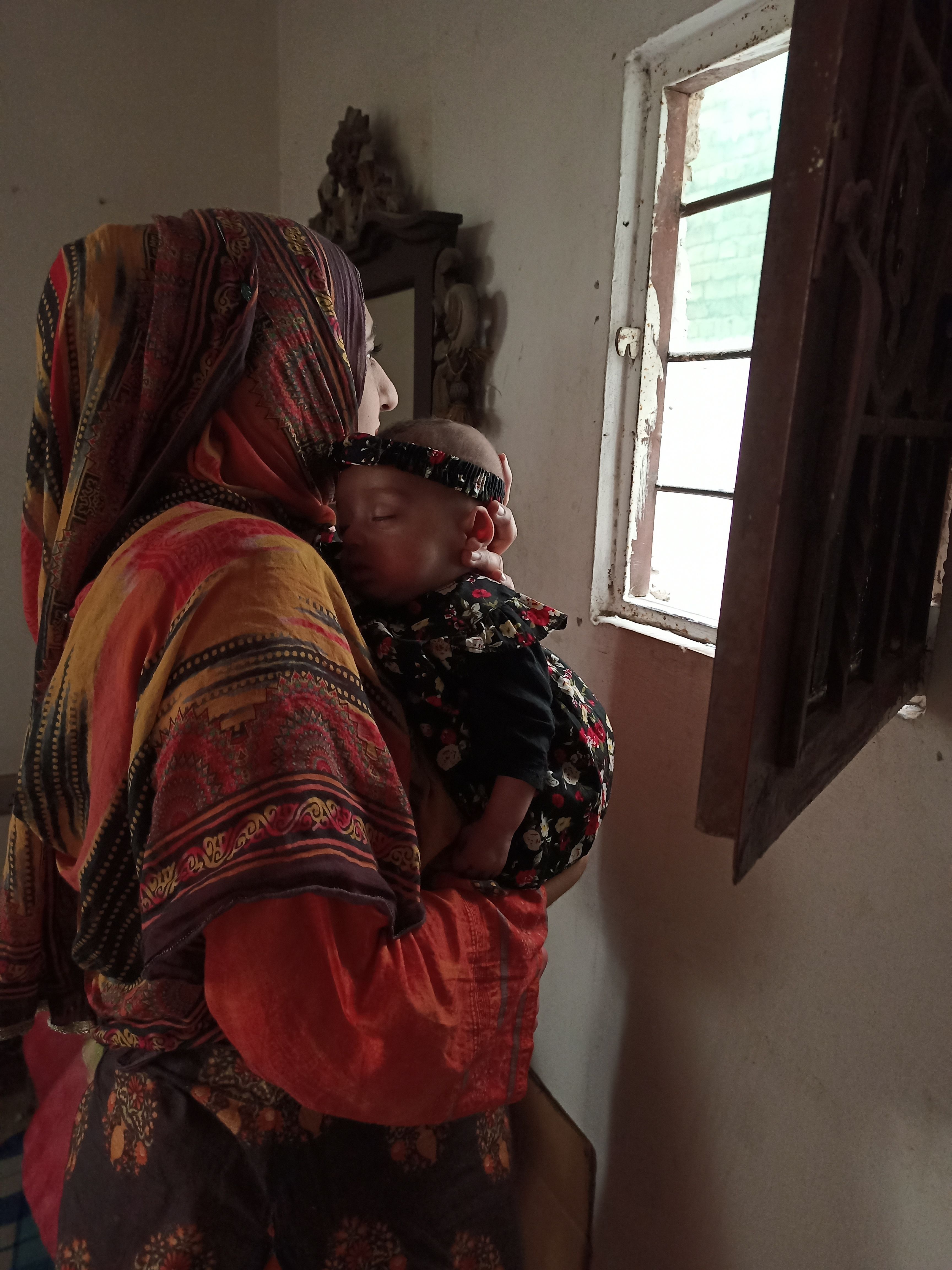Latest updates
STEMMING THE TIDE OF POLIO
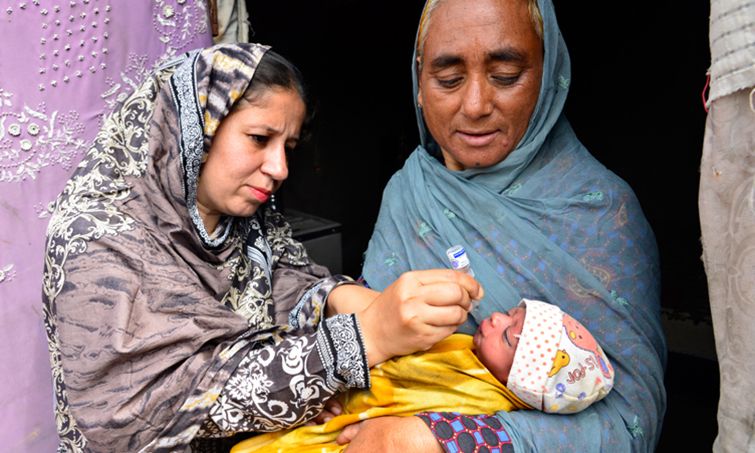
Four-day old Zain receiving his first dose of oral polio vaccine in Rawalpindi, Pakistan. PHOTO: Pakistan Polio Eradication Program
ISLAMIC DEVELOPMENT BANK AND PARTNERS LEAVE NO CHILD BEHIND IN THEIR FIGHT AGAINST POLIO IN PAKISTAN
Wedding festivities are in full swing in one of the nomadic settlements in Rawalpindi - the fourth most populous city in Pakistan. The four-day old Zain is the youngest guest at the wedding, who has travelled all the way from Multan with his 50 year-old grandmother Sakina Bibi.
It’s a big day for Zain as he is about to receive his first dose of free oral polio vaccine in Union Council Cant. 10, which is one of the 192 polio hotspots in Rawalpindi, and is on the radar of local authorities for regular tracking and targeted immunization drive.
Known as ‘khana badoshs’ locally, the nomads in Pakistan, like elsewhere, are particularly more vulnerable to polio because they are perennially on the move and likely to give a miss to door-to-door vaccination campaigns. Although sometimes polio workers don’t have a door to knock on. Only a makeshift tent.
“Mobile and migrant populations are under-vaccinated compared to settled groups. As a result, they act as a vehicle carrying the virus to and from the reservoir and diluting population immunity.” says the District Health Officer of Rawalpindi, Dr Abdul Jabbar.
However, the financing partnership of US$ 160 million between the Islamic Development Bank (IsDB) through the Lives and Livelihoods Fund (LLF) and global development partners such as the Bill and Melinda Gates Foundation, the Abu Dhabi Fund for Development, the Islamic Solidarity Fund for Development, KSrelief and the Qatar Fund for Development, is reversing the situation for the better.
The IsDB and LLF assistance to the Government of Pakistan’s Polio Eradication Initiative (PEI) has been critical in operationalizing immunization activities and securing 501.14 million oral poliovirus vaccines (OPVs) for 43 million children across the length and breadth of the country.
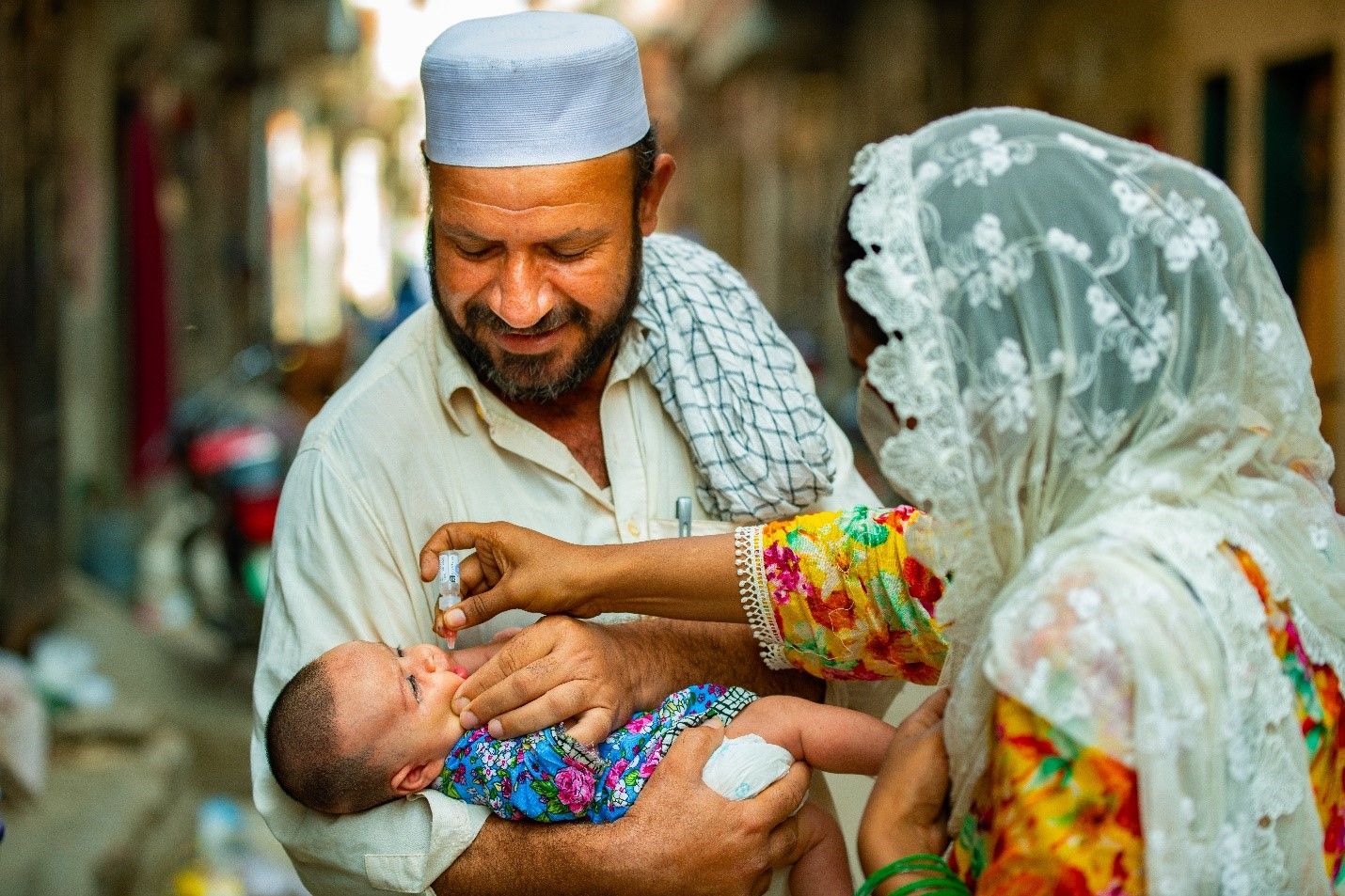 The LLF-supported National Immunization Days have shattered stereotypes about the polio vaccine as well as paved the way for more girls to have access to them. PHOTO: Pakistan Polio Eradication Program
The LLF-supported National Immunization Days have shattered stereotypes about the polio vaccine as well as paved the way for more girls to have access to them. PHOTO: Pakistan Polio Eradication Program
“How to reach children where they leave from and where they land, even if that “landing” is only for a few days stay at a relative’s house, is by no means easy. It requires a different approach to the process of microplanning and immunization activities,” tells Sidrah Nouman, who has just administered the drops to Zain.
“My seven grandchildren get vaccinated each time the vaccinators come at our doorstep; we do not have to go anywhere,” exclaims Amana Bibi, one of the residents of UC Cant. 10.
The operational support from LLF has helped launch 12 National Immunization Days (NIDs), which catalyze community mobilization in urban and rural cities. The close collaboration between different partners and cooperation from communities have also ensured that the national immunization campaigns run on the wheels in wake of natural and health emergencies. The dedicated efforts of all stakeholders were particularly noticeable when NIDs resumed after COVI-19 hiatus in 2020. More than 260,000 trained frontline workers took part in anti-polio campaign and administered vaccine among children without touching them. The skilled frontline health workers trained by LLF are the linchpin of a monumental feat of eradicating polio. They travel many kilometers, often into uncharted territories, rife with disasters and insecurity. Sometimes they run out of fuel, sometimes they’re welcomed with aggression, but the vaccinators take it in their stride.
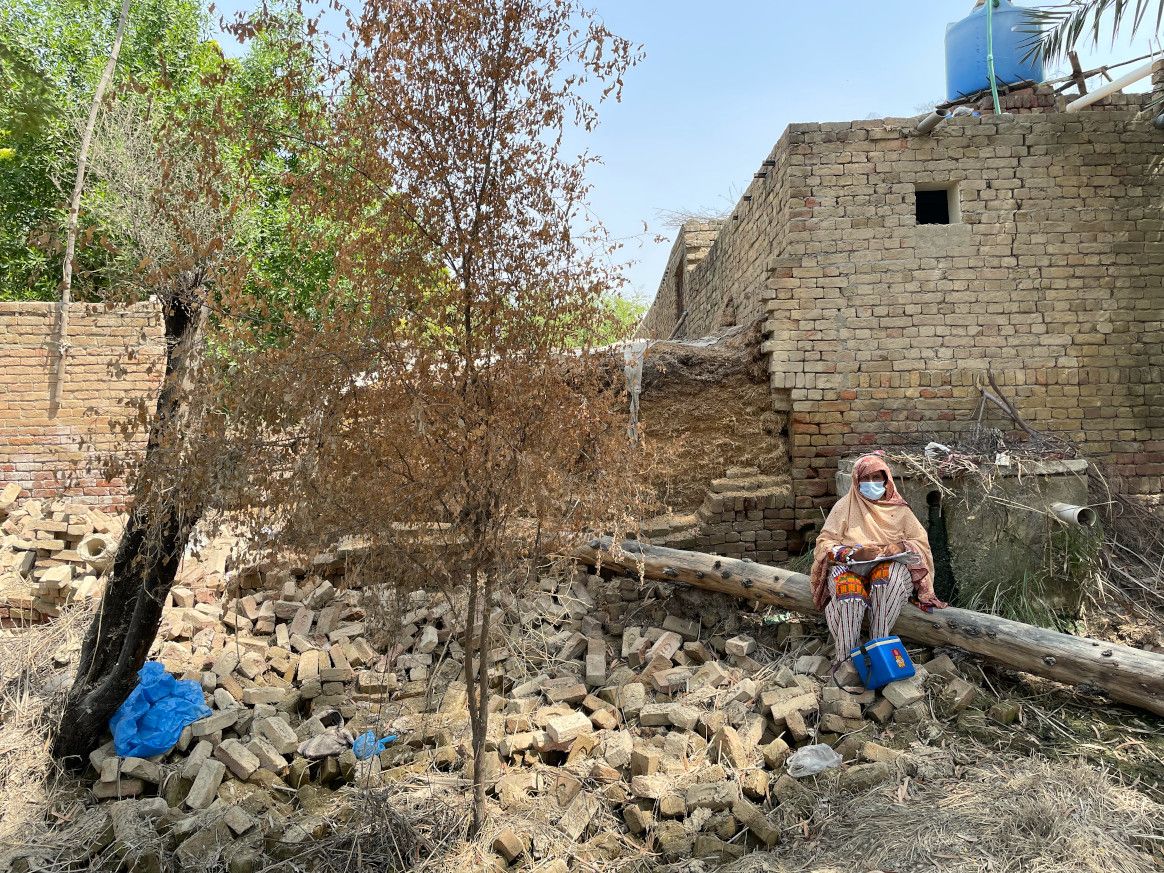 Health workers often must wait outside in scorching heat before being permitted into the house to vaccinate children in rural regions of Pakistan. PHOTO: World Health Organization/Pakistan
Health workers often must wait outside in scorching heat before being permitted into the house to vaccinate children in rural regions of Pakistan. PHOTO: World Health Organization/Pakistan
One such vaccinator is Zareen Khanum, who is part of the 260,000 strong frontline workforce that regularly defies all odds to reach vulnerable children with the polio vaccine during NIDs. She is now joined by her 20-year old son, Mujeeb. Together this mother-son duo covers more than 120 houses from dawn to dusk.
“I do not support my mother for money or ambition, rather, I feel proud to be part of this national cause for my country and my country’s children,” says Mujeeb.
“People listen to me as I am committed to this cause. They know and recognize my mother and me from years of knocking on their doors during campaign rounds. I have always made it a point to inform them of scientific evidence in order to overcome any misinformation or conspiracy theories they may have about the polio vaccine,” he added.
In addition to achieving operational efficiency, the Lives and Livelihoods Fund’s contributions to the Pakistan Polio Eradication Initiative have strengthened other areas of work like strategizing and finding solutions to immunize hard-to-reach children, surveillance, vaccine procurement, awareness raising, and communications – all of which have made the program more adaptable and responsive to the dynamic and rapidly changing polio eradication environment. The success of the initiative has also inspired confidence in the healthcare system and provided a strong foundation for countering other public health threats, while also improving healthcare seeking behavior among parents.
Related articles
Cookies
By browsing our website you accept our Terms and Conditions
